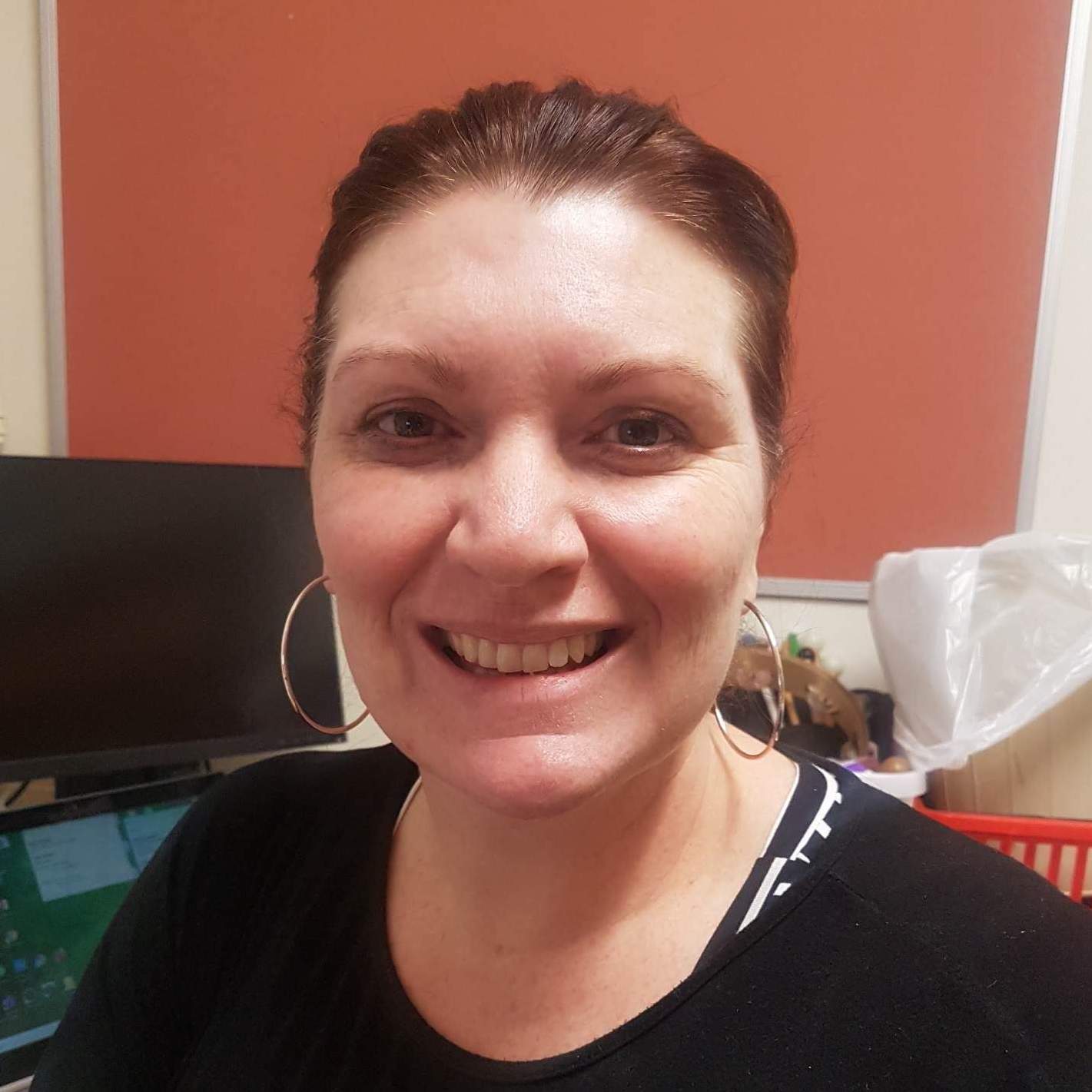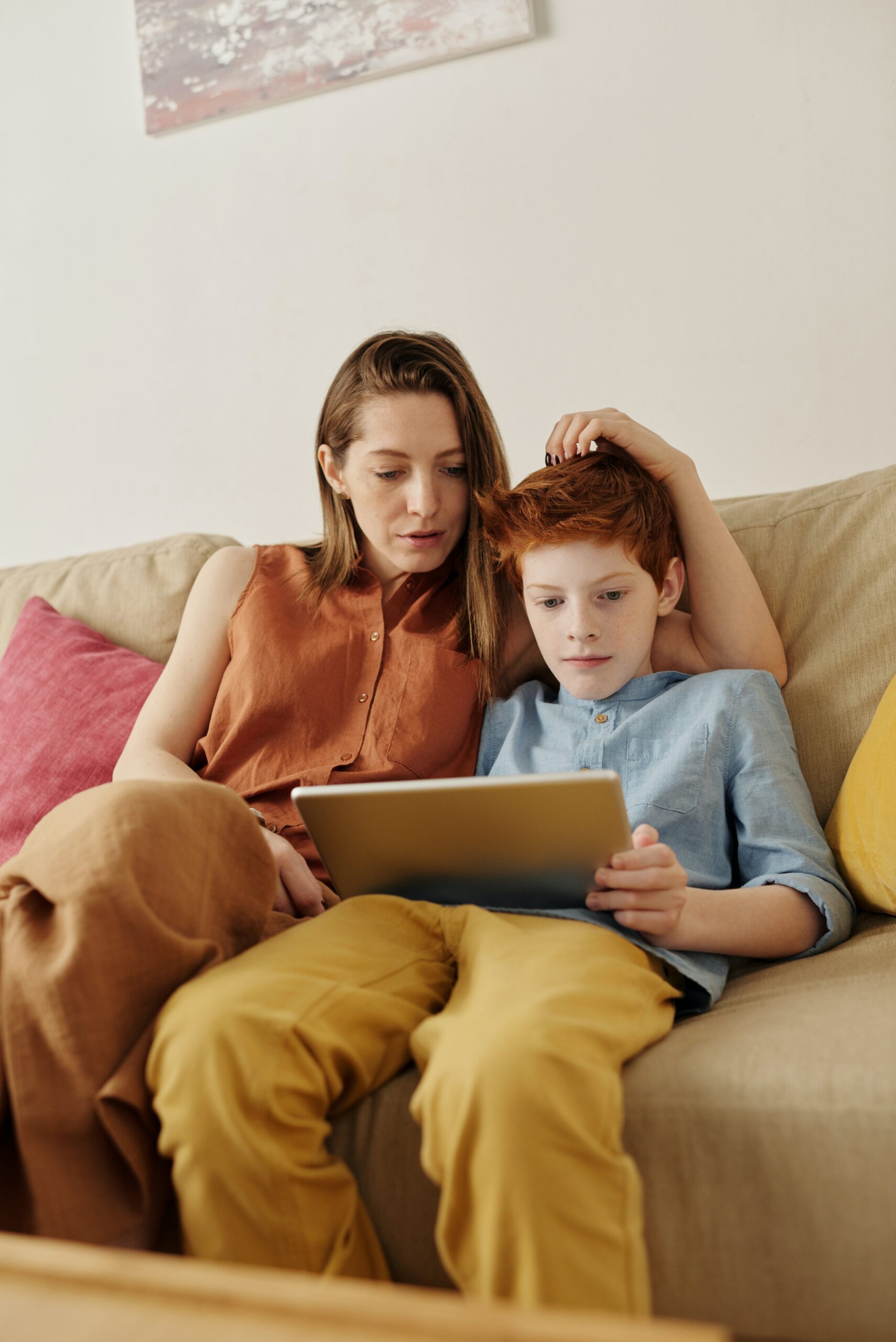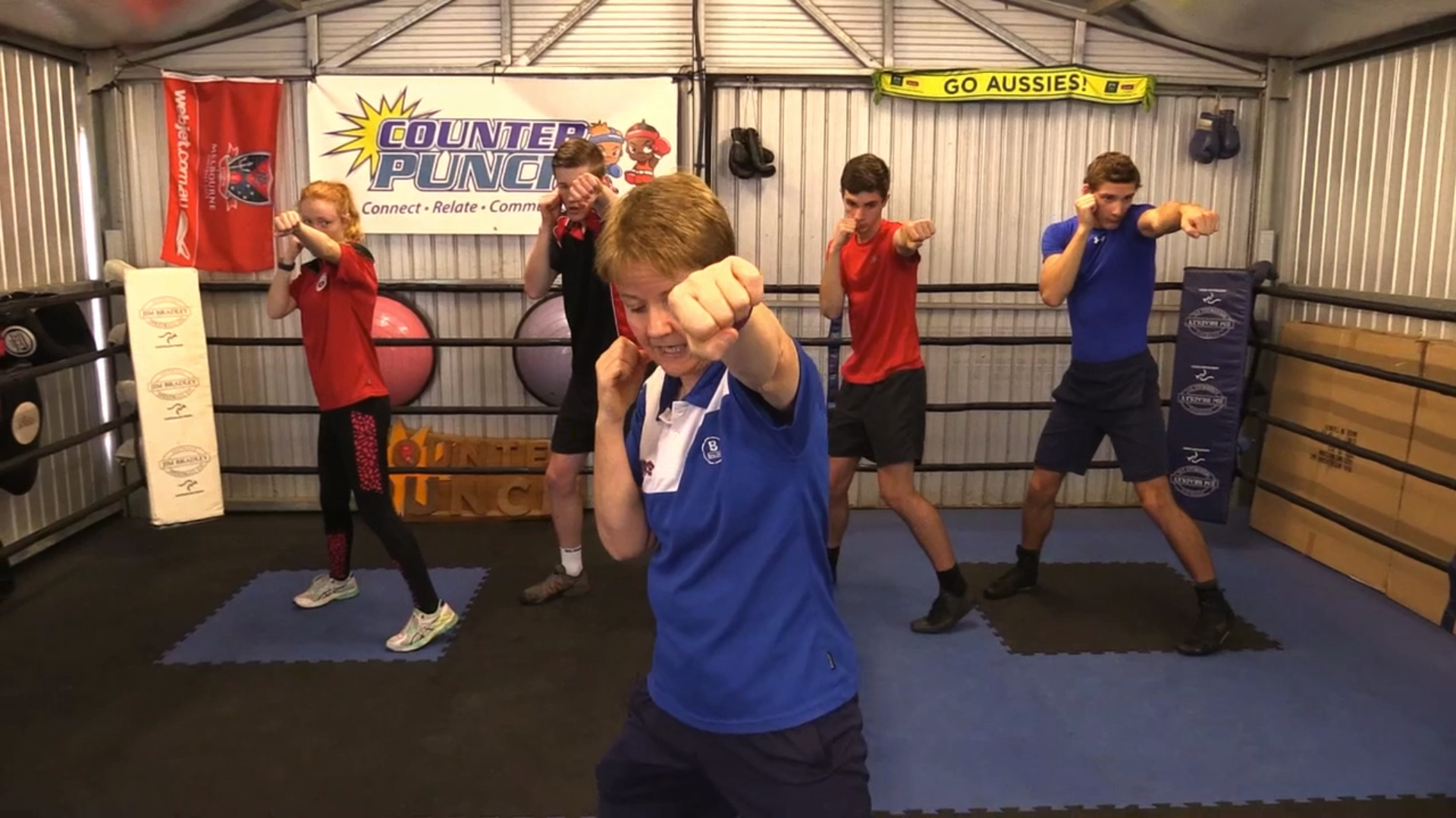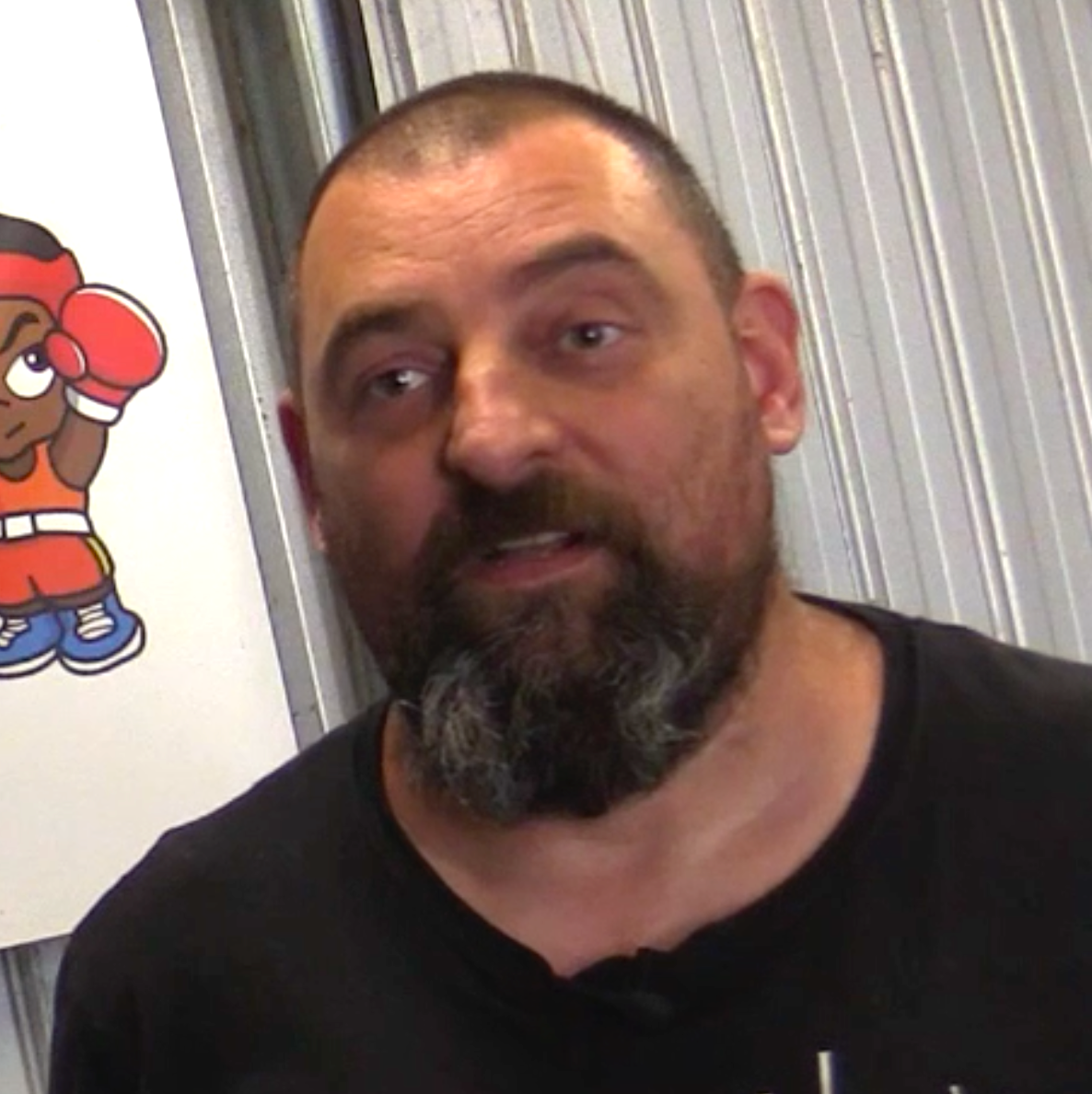Check out what mum Kellie Blacker
had to say about her experience →
OR Call us at 0411 533 004
Check out what mum Kellie Blacker
had to say about her experience ↓

Kellie Blacker
Parent of CounterPunch Participant
" Right from the get-go, the first couple of weeks I actually noticed a difference in him.
He became more communicative at home, he felt that he could articulate feelings and emotions a whole lot better — he learnt skills that I think as a parent I would've actually found really hard to teach him.
He just seemed to have a sense of peace and calm and happiness."
Why Communicating With Your Teenager Feels Impossible...
You know your child could be achieving more.
But for some reason, you just can't seem to get them motivated.
On top of that, you're trying your best to help them, but instead of listening to your words of advice, they:
- Hide in their bedroom and never come out
- Give you the silent treatment
- Express random bursts of emotion
- Exhibit passive-aggressive behaviour
- Make snarky, sarcastic comments
- Seem to zone out while you're talking with them
- Consciously choose to rebel against you by doing the wrong thing
- (Or sometimes, all of the above)
As a parent, it can be tough to deal with these kinds of behaviour. Sometimes impossible.
You love your child dearly, but end up feeling unheard and under-appreciated despite your good intentions.
It's not your fault.
They're simply going through a period of rapid transformation and identification as they transition into adulthood, and with that comes many emotional challenges.
They're flooded with new emotions they haven't felt before and don't know how to manage, and they're consistently trying to balance between the identity of being a dependent child versus an independent young adult.
Not to mention, their brains are still growing, and they haven't fully developed the ability to step back and analyze situations rationally.
It's a critical period of their lives where they can learn how to recognise, manage and express emotions in a healthy manner – skills that if teenagers don't learn, can affect the quality of their lives in adulthood.
Unfortunately, most schools don't equip your child with these 'life-skills' they need to get ahead – and that's where CounterPunch can help. The CounterPunch program is the easiest way for your child to acquire these skills.
The CounterPunch™ method teaches teenagers practical tools to both understand and effectively master the life skills needed to recognise, manage and express emotions such as stress, anxiety, anger and depression in a healthy manner – skills that if teenagers don't learn, can affect the quality of their lives later in adulthood.
Why Communicating With Your Teenager Feels Impossible...
You know your child could be achieving more.
But for some reason, you just can't seem to get them motivated.
On top of that, you're trying your best to help them, but instead of listening to your words of advice, they:
• Hide in their bedroom and never come out
• Give you the silent treatment
• Express random bursts of emotion
• Exhibit passive-aggressive behaviour
• Make snarky, sarcastic comments
• Seem to zone out while you're talking with them
• Consciously choose to rebel against you by doing the wrong thing
• (Or sometimes, all of the above)
As a parent, it can be tough to deal with these kinds of behaviour. Sometimes impossible.
You love your child dearly, but end up feeling unheard and under-appreciated despite your good intentions.
It's not your fault.
They're simply going through a period of rapid transformation and identification as they transition into adulthood, and with that comes many emotional challenges.
They're flooded with new emotions they haven't felt before and don't know how to manage, and they're consistently trying to balance between the identity of being a dependent child versus an independent young adult.
Not to mention, their brains are still growing, and they haven't fully developed the ability to step back and analyze situations rationally.
It's a critical period of their lives where they can learn how to recognise, manage and express emotions in a healthy manner – skills that if teenagers don't learn, can affect the quality of their lives in adulthood.
Unfortunately, most schools don't equip your child with these 'life-skills' they need to get ahead – and that's where CounterPunch can help. The CounterPunch program is the easiest way for your child to acquire these skills.
The CounterPunch™ method teaches teenagers practical tools to both understand and effectively master the life skills needed to recognise, manage and express emotions such as stress, anxiety, anger and depression in a healthy manner – skills that if teenagers don't learn, can affect the quality of their lives later in adulthood.

Parents
Positives
Challenges

Teenagers
Positives
Challenges

CounterPunch™
Positives
Requirements

Parents
Positives
Challenges

Teenagers
Positives
Challenges

CounterPunch™
Positives
Requirements
The Program Curriculum
Phase #1 – Stepping Into The Ring
- Learn the basics of physical preparation, physiology and Boxing technique.
- What should I eat, lifestyle education.
- How to set and achieve value linked goals.
- Problem solving and have fun doing it!
Phase #2 – Mastering Your Ring Craft
- Develop your CV!
- What is the Performance Jigsaw?
- The 4 C's of Mental Fitness
- Techniques and tactics of boxing
- Techniques and tactics for life
- How to use values to change behaviour
Phase #3 – Master Your Self
- How to feel good by changing your physiology
- Clean the windscreen and change your perspective
- What motivates me? What do I need?
- What's important to me?
- Who's the boss?
- Make the change!
Phase #1 – Stepping Into The Ring
• Learn the basics of physical preparation, physiology and Boxing technique.
• What should I eat, lifestyle education.
• How to set and achieve value linked goals.
• Problem solving and have fun doing it!
Phase #2 – Mastering Your Ring Craft
• Develop your CV!
• What is the Performance Jigsaw?
• The 4 C's of Mental Fitness
• Techniques and tactics of boxing
• Techniques and tactics for life
• How to use values to change behaviour
Phase #3 – Master Your Self
• How to feel good by changing your physiology
• Clean the windscreen and change your perspective
• What motivates me? What do I need?
• What's important to me?
• Who's the boss?
• Make the change!
Why Parents Send Their Children
Because you want your child to make the most of their opportunities in life.
Because you want them to have the very best education possible.
Because you want them to have every means at their disposal to live a happy, successful and rewarding life.
Because you want to enjoy a close, caring and loving relationship with your child for years to come.
Because you want your child to realize their full potential.
Because you never, ever want your child to say the words: "if only I'd known these things when I was younger"
OR call us at 0411 533 004

Matt Raeburn
Parent of CounterPunch Participant
" He's got a complete new attitude — he does his own thing now, he's not trying to impress other people by doing the wrong things.
Just improved his work ethic ten-fold.
He doesn't hide in his bedroom anymore, he's always out helping around the house without even having to ask him. He's doing his own washing now, and plays with his little brother more.
He's just a lot happier, and he's got direction now. Couldn't have asked for anything better."
Frequently Asked Questions
Who is it for?
Pre-Adolescents (9-11 years old)
Adolescents (12yrs +)
What happens during a session?
In this program, teenagers will gain an understanding of how they can switch from external to internal control and take charge of their own emotions. It is a mix of physical activity and discussion to understand how “emotion” works and learn strategies to connect, relate and communicate more effectively with themselves, their peers and the adults in their lives to reach their full potential.
How is it different?
CounterPunch Psychology is unique in that it uses physical activity as a medium of therapeutic intervention combined with a reality therapy / choice theory and performance psychology framework.
The CounterPunch program also aligns with school well-being policies and programs including
- Health and physical education year 7 & 8
- SACE Integrated Learning Stage 1 & 2
- Community studies
CounterPunch can also be delivered as an intensive two-day workshop training for parents, teachers, youth workers or service providers who want to learn the CounterPunch method for their own personal or professional well-being. Contact us for more details
Who is it for?
Adolescents (11yrs +)
What happens during a session?
In this program, teenagers will gain an understanding of how they can switch from external to internal control and take charge of their own emotions. It is a mix of physical activity and discussion to understand how “emotion” works and learn strategies to connect, relate and communicate more effectively with themselves, their peers and the adults in their lives to reach their full potential.
How is it different?
CounterPunch Psychology is unique in that it uses physical activity as a medium of therapeutic intervention combined with a reality therapy / choice theory and performance psychology framework.
The CounterPunch program also aligns with school well-being policies and programs including
• Health and physical education year 7 & 8
• SACE Integrated Learning Stage 1 & 2
• Community studies
CounterPunch can also be delivered as an intensive two-day workshop training for parents, teachers, youth workers or service providers who want to learn the CounterPunch method for their own personal or professional well-being. Contact us for more details
Interested In Enrolling Your Teenager?
OR call us at 0411 533 004